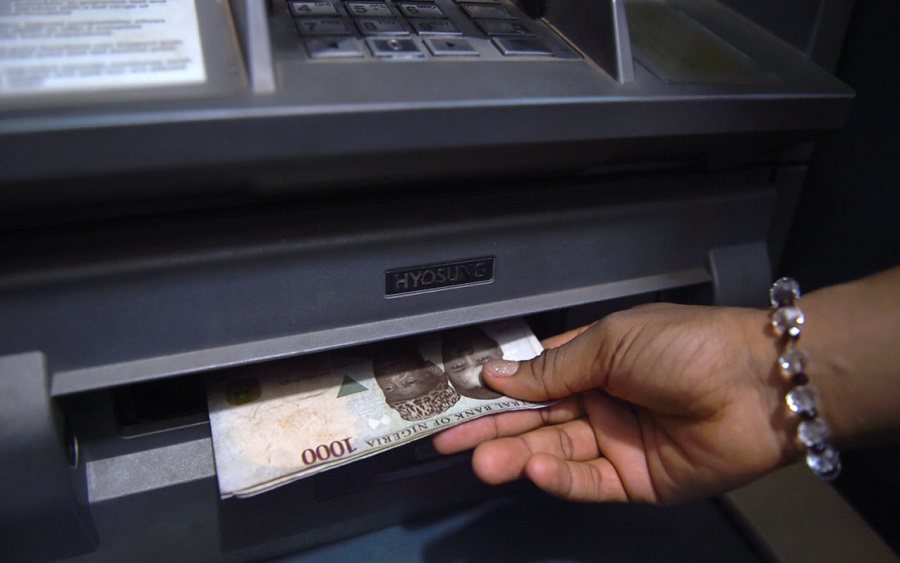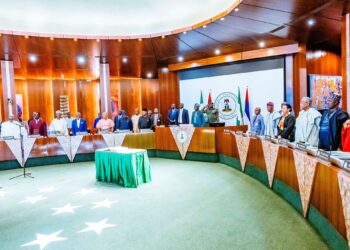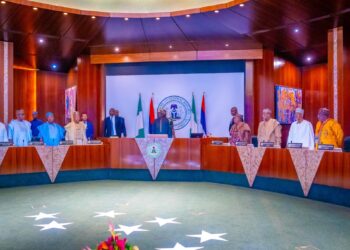Experts in the financial industry are worried that the implementation of multiple charges on financial transactions could reverse the gains the country has recorded in its financial inclusion drives.
From Electronic Money Transfer Levy (EMTL) on digital transfers to ATM withdrawal charges, Nigerians now have to pay more whether they are transferring money electronically or withdrawing cash, a development expert worries could reduce bank account usage and discourage financially excluded from opening a bank account.
Already, some merchants who had keyed into the digital payment system are now opting out, choosing rather to accept cash for payments to avoid charges.
For instance, Mrs Alayande, a frozen food seller in the Ogba area of Lagos said she no longer accepts transfers for purchases up to N10,000 and above because of the fintech transactions in December last year.
“I used to accept transfers for all payments before with my OPay account, but with the new charges on transfers, I lost money in December as they started deducting N50 from N10,000 transactions and above. Right now, if you are going to transfer, you must be ready to add the charges, or you pay me in cash,” she said.
Multiple charges disincentive to keeping bank accounts
Aside from the recently introduced N100 charges on ATM withdrawals, most banks deduct between N50 and N100 monthly for account maintenance.
Interbank transfers attract charges ranging from N10 to N50 per transaction, while customers are also charged N6 per SMS alert on transactions while using a bank’s short service code incurs a charge of N6.95.
Additionally, a N50 deduction applies to digital transfers above N10,000, on all platforms while ATM card replacements attract fees ranging from N1,000 to N2,000.
- Reacting to the introduction of N100 charges on ATM withdrawals, the Managing Director of Highcap Securities, Mr. David Adonri, expressed worry over the policy’s effectiveness in advancing Nigeria’s cashless economy initiative.
- According to him, traders and small business owners who frequently handle cash may become reluctant to deposit their earnings into bank accounts, knowing that future withdrawals will attract substantial charges.
- This, he warned, could inadvertently lead to an increase in the volume of cash circulating outside the banking system, counteracting the CBN’s efforts to promote financial inclusion and digital transactions.
“This excessive fee imposed on customers for accessing their own money is a disincentive to keeping funds in banks,” Adonri stated.
For Mr. Adewale Adeoye, a Lagos based financial analyst, while the increase in ATM charges, though influenced by the rising cost of operations for banks, could have pushed Nigerians to digital transactions, the multiple charges on electronic transactions are already discouraging Nigerians from digital transactions.
- According to him, the charges are counterproductive to the financial inclusion efforts of the Central Bank of Nigeria as more Nigerians would be pushed out of the banking system.
- He warned that the introduction of these fees could have far-reaching consequences, including discouraging people from depositing their money in banks, making formal banking unattractive, and negatively impacting the nation’s savings culture.
“This decision will enrich the banks but impoverish their customers.
“It has broad implications, as some people may choose not to even open bank accounts anymore since they have to pay multiple charges to withdraw their deposits, leading to reduced banking participation and weakening trust in the financial system,” he stated.
PoS charges set to go up
Meanwhile, Point of Sales (PoS) operators may soon increase their charges based on the new ATM charges.
According to the Chairman of the Lagos Chapter of the Association of Mobile Money & Bank Agents of Nigeria (AMBANN), David Abiodun, POS operators have no choice but to increase their charges.
“The new ATM fees will naturally affect the POS charges because, as we know, every provider has left the agents on their own. In the past, every terminal came with a preloaded SIM card and data, and the agent would work and receive a commission, but that is no more. Now, they have to provide everything for themselves.
“The ATM fees will affect POS operators in two ways: POS charges will go up, and customers will prefer to go to ATMs, thereby making PoS unprofitable,” Abiodun stated.
Abiodun further noted that the association is looking into the ATM fees as they significantly affect POS operators, adding that the CBN implemented the new fees without consulting the association.
Backstory
On February 10, 2025, the Central Bank of Nigeria announced a significant revision to Automated Teller Machine withdrawal charges, set to take effect from 1 March 2025.
In a circular reflecting the same date, the apex bank directed all banks and financial institutions to implement new ATM withdrawal charges from 1 March 2025.
The circular, signed by John Onojah, Acting Director of the Financial Policy and Regulation Department at the CBN, is expected to accelerate the deployment of ATMs across the country while ensuring that financial institutions apply appropriate charges for the service.
- Under the new directive, withdrawals made from a customer’s bank ATM will remain free. However, customers using another bank’s ATM will now be charged N100 per N20,000 withdrawal when using ATMs located within bank premises.
- For withdrawals made at off-site ATMs, a charge of N100 per N20,000 withdrawal will apply, along with a surcharge of up to N500.
- The apex bank attributed the review to rising costs and the need to enhance efficiency in ATM operations.
- Meanwhile, fintechs like PalmPay, OPay, and Moniepoint, among others, started deducting EMTL from their customers’ transactions on December 1, 2024, as the government expanded the levy to shore up its revenue.
- While customers of some of the fintechs had enjoyed 100% free transactions on the platforms the introduction of the EMTL brought that era to an end.
This report is produced under the DPI Africa Journalism Fellowship Programme of the Media Foundation for West Africa and Co-Develop.























